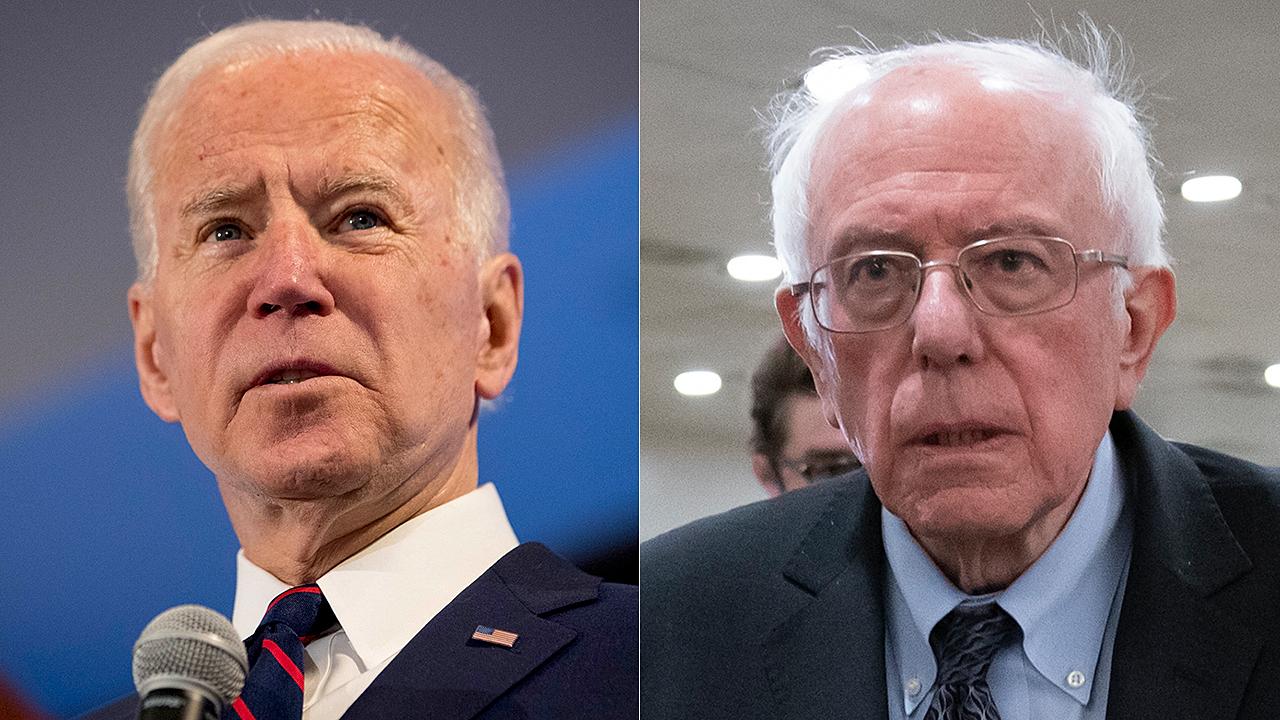How Sanders’, Biden’s individual tax-the-rich proposals stack up
What the candidates' competing proposals could mean for the US economy
Democratic presidential candidates Joe Biden and Bernie Sanders have both vowed to raise taxes on the wealthy if elected, but the Vermont senator has proposed exponentially higher levies.
Biden’s tax plan would raise individual income taxes by about $109 billion, over a decade, according to new estimates published by the right-leaning Tax Foundation. By comparison, Sanders’ plan would raise taxes on the wealthiest Americans by nearly $3.2 trillion over that same period, according to the data.
BIDEN DEFEATS SANDERS IN KEY STATES, SECURES NEARLY INSURMOUNTABLE DELEGATE LEAD
The former vice president has called for reversing the Republican-passed Tax Cuts and Jobs Act and restoring the top marginal tax rate to 39.6 percent. Still, that would have little long-term effects, because the tax cut was already set to expire in 2025. Biden’s proposal would not hurt GDP in the long-run, the Tax Foundation estimated.
But Sanders, a self-described democratic socialist, has proposed a new top marginal rate of 52 percent on incomes higher than $10 million and a 4 percent income-based premium on all households to finance his Medicare-for-all proposal. He also called to repeal a deduction for owners of partnerships and limited liability companies in the 2017 tax law.
SANDERS VOWS TO STAY IN 2020 RACE AS BIDEN CLOSES IN ON DEMOCRATIC NOMINATION
His proposal would reduce GDP by close to 2 percent, while wages would fall by 0.41 percent, a result of the new top marginal rate and the 4 percent tax.
“The combined effect of the proposals would increase the progressivity of the tax code, primarily due to the new top marginal rate on high-income earners,” the study said. “Overall, Sanders’ proposal would reduce after-tax income of all taxpayers by 2.6 percent, on average.”
Earlier this week, Sanders’ path to the nomination considerably narrowed after Biden won a majority of Tuesday’s primaries, scooping up victories in delegate-rich Michigan as well as Missouri, Mississippi and Idaho.
SANDERS' 2020 EXPECTATIONS DERAILED BY BIDEN'S COMEBACK
To wrest the nomination from Biden, Sanders needs to win 57 percent of the remaining delegates, a difficult and historically unlikely feat. More than half of delegates are still available in the upcoming primaries.
Candidates need to secure 1,991 delegates of the 3,979 pledged delegates to clinch the nomination. More than half of the pledged delegates have not yet been allotted, meaning that Biden cannot mathematically win the nomination until at least April 28.
According to the Associated Press’ delegate tracker, Biden leads with 864 delegates, while Sanders has 710 -- a nearly insurmountable gap to overcome.




















